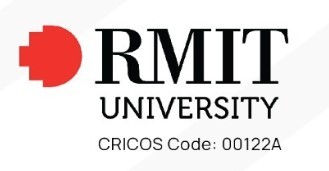
Bachelor of Environment and Society


Overview
Duration
FULL-TIME 3 YEARS
FULL-TIME 3 YEARS
Scholarship
YES
YES
Fee
AU$34,560
AU$34,560
Intake
FEBRUARY, JULY
FEBRUARY, JULY
Overview
- The Bachelor of Environment and Society is a step toward a career that addresses the most pressing issues of our time, including biodiversity protection, food and water security, corporate responsibility, resource depletion, and climate change.
- You’ll join a community of passionate peers, all learning how to develop new methods of consumption and production, working toward a more sustainable future.
- This unique degree highlights the social elements of environmental issues, providing graduates with operational knowledge and essential soft skills in communication and critical thinking, making you highly desirable to future employers. As a graduate, you will understand how to evaluate environmental policies and management strategies at local and global levels.
- To ensure you’re work-ready, you will undertake a minimum 20-day work placement in your final semester. Engagement with the environmental sector is also embedded in a number of subjects and assessments, and your final year project offers a chance to explore your passions in a supported environment.
- You will have the opportunity to participate in global study tours, and can take advantage of RMIT’s expansive network of industry contacts in leading environmental agencies and organisations.
Inquire Now
Career
- As a Bachelor of Environment and Society graduate, you will have specific knowledge, as well as practical communication, problem-solving and research skills to help make you a desirable candidate to employers.
- Your studies will prepare you to be an effective agent for the environment and for society, locally and internationally. You may find work with:
- Commonwealth, state and local governments
- consulting firms
- community organisations
- private and public businesses in metropolitan and rural areas
- non-government aid and development agencies.
Entry Requirement
- To study this course you will need to complete one of the following English proficiency tests:
- IELTS (Academic): minimum overall band of 6.5 (with no individual band below 6.0)
- TOEFL (Internet Based Test - IBT): minimum overall score of 79 (with minimum of 13 in Reading, 12 in Listening, 18 in Speaking and 21 in Writing)
- Pearson Test of English (Academic) (PTE (A)): minimum score of 58 (with no communication band less than 50)
- Cambridge English: Advanced (CAE): minimum of 176 with no less than 169 in any component.
Popular Courses
Start your journey with landmark today!
Find your perfect course
Answer a few questions and
our course matcher will do the rest
Head Office
Level 5, IT Plaza
Kamaladi, Kathmandu
Tel: +977 14542781, 9845566225
E-mail: info@landmarkedu.com
Kamaladi, Kathmandu
Tel: +977 14542781, 9845566225
E-mail: info@landmarkedu.com
Sydney office
Suite 1 Level 1,
46 Macquarie Street,
Parramatta, NSW
Tel: +61 415 122 814
46 Macquarie Street,
Parramatta, NSW
Tel: +61 415 122 814
Branch office
Sahidchowk, Chitwan
Tel: 056-590825
Tel: 056-590825
Mahendrachowk, Biratnagar
Tel: 021-590828
Tel: 021-590828
Level 2, Milanchowk, Butwal, Rupandehi
Tel: 977-71-591694
Tel: 977-71-591694
© Landmark Education. All rights reserved.


